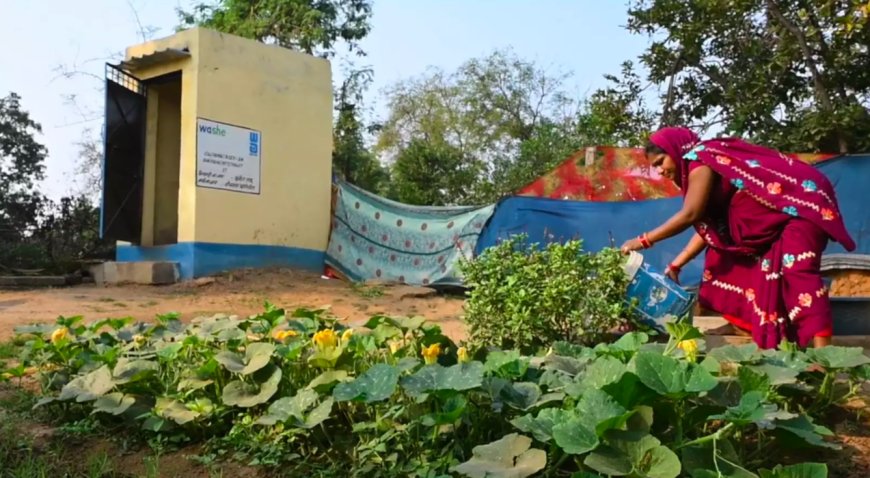The Challenges of Wastewater Management in Rural Communities

Wastewater management is a crucial part of maintaining clean and healthy living conditions, but it often goes unnoticed in rural communities. Unlike cities, where infrastructure and systems are in place to handle waste effectively, rural areas face several hurdles in managing wastewater safely. These challenges affect not only the environment but also the health and quality of life of the people living in these regions.
Well explore the common challenges rural communities face with wastewater management, why it matters, and what can be done to improve the situation.
What Is Wastewater and Why Is Its Management Important?
Wastewater is any water that has been used in homes, farms, or industries. It includes water from toilets, kitchens, washing machines, and even agricultural runoff. If not treated properly, it can carry harmful bacteria, viruses, and chemicals into local water sources.
Wastewater management is the process of collecting, treating, and disposing of wastewater in a safe and environmentally friendly manner. When handled well, it helps prevent water pollution, protects public health, and preserves the natural ecosystem.
Key Challenges in Rural Wastewater Management
Rural communities face many issues when it comes to wastewater treatment and disposal. These challenges often stem from a lack of infrastructure, funding, and awareness.
1. Lack of Proper Infrastructure
Most rural areas do not have access to centralized sewage systems. This means wastewater from homes and farms often flows directly into open fields, rivers, or makeshift drains. Without proper pipelines, treatment plants, or septic systems, wastewater management becomes a major concern.
2. Limited Financial Resources
Building and maintaining wastewater treatment facilities is expensive. Rural communities often lack the necessary funds and support from local authorities to invest in proper systems. Even when small-scale solutions exist, the cost of maintenance and repair can be too high for villagers to afford.
3. Low Public Awareness
Many people living in rural areas may not understand the importance of wastewater management. This lack of awareness leads to unsafe practices such as dumping waste into nearby ponds, lakes, or land. Over time, this contaminates drinking water sources and causes health problems.
4. Poor Government Support and Policy Implementation
Although there are government schemes aimed at improving sanitation in rural areas, their implementation is often slow or ineffective. Corruption, lack of skilled manpower, and poor monitoring make it difficult to maintain wastewater treatment systems in the long run.
5. Geographical and Environmental Limitations
In some villages, the terrain makes it difficult to set up wastewater management systems. Hilly or rocky areas, for example, may not be suitable for constructing sewage pipelines or treatment plants. Moreover, seasonal changes like monsoons can damage existing systems.
Health and Environmental Impact of Poor Wastewater Management
When wastewater treatment is ignored, it creates serious problems for both people and the environment.
Health Risks: Contaminated water can cause diseases such as cholera, dysentery, and typhoid. Children and elderly people are especially vulnerable.
Water Pollution: Rivers, ponds, and wells get polluted, reducing the availability of clean drinking water.
Soil Degradation: Dumping untreated wastewater in fields reduces soil fertility and harms crops.
Loss of Biodiversity: Aquatic life suffers when untreated wastewater enters lakes and rivers.
All these effects reduce the overall quality of life in rural areas and make daily survival more difficult.
Potential Solutions for Better Rural Wastewater Management
Despite the challenges, several solutions can help improve wastewater management in rural areas:
1. Low-Cost, Decentralized Systems
Instead of large, expensive plants, rural areas can adopt small-scale wastewater treatment systems like bio-digesters, composting toilets, and constructed wetlands. These solutions are cost-effective and easy to maintain.
2. Community Participation
When local people are involved in planning and maintaining wastewater management systems, they are more likely to take care of them. Awareness programs, village committees, and training sessions can help educate the community about hygiene and safe disposal practices.
3. Government and NGO Support
Stronger collaboration between the government and non-governmental organizations can bring technical knowledge and funding to villages. Programs that focus on sanitation and clean water can include modules on wastewater treatment to build a more comprehensive approach.
4. School Education
Teaching children about hygiene and wastewater management from a young age can bring long-term change. Schools can act as change-makers by promoting clean practices and becoming models for better sanitation.
5. Monitoring and Accountability
Regular inspections and monitoring of wastewater treatment systems ensure that they are working properly. Local bodies should be held accountable for maintenance and timely upgrades of facilities.
Conclusion
Wastewater management in rural communities is not just a technical challengeit is a public health and environmental issue that needs urgent attention. By addressing the lack of infrastructure, funding, and awareness, we can make significant progress in protecting both people and nature.
Governments, NGOs, and rural residents must work together to create affordable, sustainable, and community-friendly wastewater treatment systems. It may take time and effort, but the long-term benefits are worth itclean water, healthier lives, and a better future for all.








































